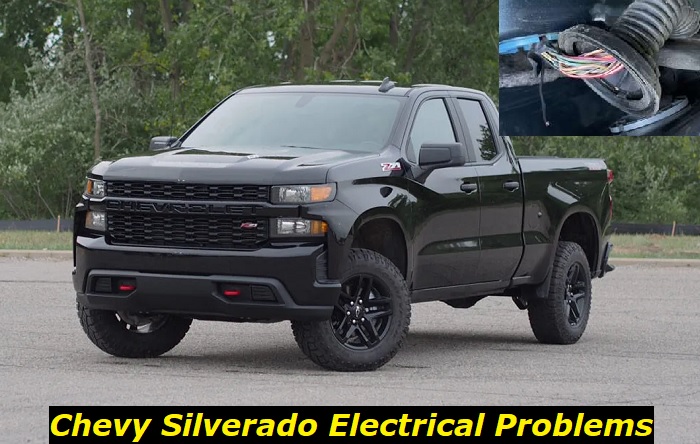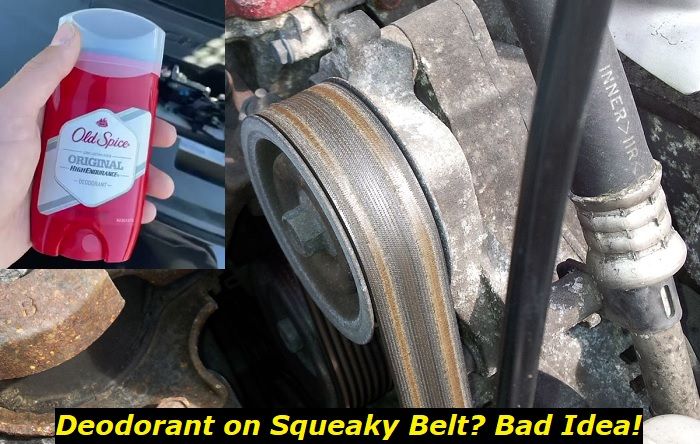The Chevrolet Silverado is one of the most reliable pickup trucks in the world. It comes in three major trim levels. The most popular trim is the more passenger-friendly, called the Silverado 1500. The 2500HD and 3500HD are built for work. They are well-equipped for hauling and towing massive and heavy loads. And although the Silverado electrical system does not suffer many faults, it is advisable to be on the lookout to avoid surprises on the road.
Electrical problems highlights
- Level of urgency:high
- DIY inspection:possible but complicated
- DIY repairs:impossible
- Can you drive?yes, if it starts
- Price of repairs:$300 - $650
- Ifignored:a lot of functions may not work, glitches, issues with equipment
- Ways to fix:check the wiring, battery, alternator, and the faulty equipment itself

What Fails When Your Silverado Has Electrical Problems?
Electrical power in your truck comes from two primary sources: the battery and the alternator. The battery has one major function: to start the vehicle. It is the source of the high voltage required to ignite the engine. Once the engine cranks up, the alternator picks up from there. The alternator is a small generator responsible for the even supply of the low-level electricity that powers other electrical systems of the Silverado.
All the lights, radio, dashboard, battery charging, and other electrical systems draw their power from the alternator.
There are four places to check if your Chevy Silverado experiences electrical problems.
- Battery
Since the battery only has one primary role of igniting the engine, if it develops a problem, the truck won't start. The headlights and dashboard might also dim. A bad battery is the first thing to check when your vehicle fails to crank. However, other factors may cause the problem. A bad starter or corroded cables may also cause the engine not to start. There could also be a broken connection between the battery and the starter, a possible cause of the engine not starting.
- Alternator
If your truck has a faulty alternator, you will slowly lose power. It starts with the lights dimming, and then the entire truck dies. When the alternator fails, all other systems depending on electrical power will cease to function. Every system that keeps the vehicle going will also break. In such an event, you will need to call a mobile mechanic or tow your Silverado to the nearest Chevrolet service center.
- Ignition Coil or Spark Plug
If the ignition coil on your Silverado goes bad, you'll notice smoke and a foul odor. Pop the hood and check it immediately. A bad coil has a similar effect as a faulty alternator; it causes your truck to lose power. The Silverado won't start if the ignition coil is spoiled.
The ignition coil failure is caused by vibrations or heat. A broken connection to the spark plugs can also cause the coil to stop working.
- Solenoid or Starter
If the Solenoid or starter is faulty, the engine won't crank. A defective solenoid makes a clicking sound when you turn the key. One of the signs that it's only the Solenoid you need to check is when the lights are working perfectly, but the truck won't start.
4 Symptoms of Chevy Silverado Electrical Problems
An electrical issue is one of the most dangerous problems in a vehicle. It gets worse if the fault involves wires catching fire. Whether you are a seasoned or a new driver, your Silverado will show you a sign that something nasty is going on with your electrical system. The problem will involve one of the four items mentioned earlier; battery, alternator, starter, or ignition coil.
Regardless of the cause, you will experience one or some of these symptoms when your vehicle's electrical system is going bad.
- The Engine Won't Start Properly
The engine needs a proper flow of electrical current to ignite. Through the start switch, the battery provides the spark that ignites the fuel. Engine failure to ignite is usually caused by a drained battery, faulty alternator, or starter. The Silverado's alternator has to work well with the battery for the truck to operate. There are several ways a bad alternator will affect your vehicle.
If you hear a clicking sound when you try to ignite the engine, the most probable cause is a faulty alternator. The explanation is insufficient current flowing in the vehicle's electrical system to power the vehicle up.
If you turn the key and hear grinding noises, the most apparent cause is a spoiled starter. If your Silverado has been on the road for a while and has a large number on the odometer, there's probably more than one problem in your electrical system.
We highly recommend that you take the vehicle for an Electrical System Diagnosis. Adhering to your Chevrolet's recommended maintenance schedule will also help minimize the chances of experiencing these electrical problems.
- Lights Aren't Working Properly
Besides starting the vehicle, the electrical system of your Silverado is responsible for all the lighting. The electrical system controls the headlights, brake lights, turn signals, and interior lamps. These lights are responsible for your safety on the road. Imagine driving on the highway, you've reached your destination, but you can't exit the road because your turn signals aren't working correctly.
It's a nightmare.
If there's a problem with your Silverado's electrical system, several lights in your vehicle will begin to dim. This is an indication of low voltage in the system. This problem can be caused by a drained battery, faulty alternator belt, or loose wires.
You will know the seriousness of the issue if the "check engine" light illuminates. This means you have a severe electrical problem that requires an expert Chevy mechanic to check and fix. Corrosion on battery terminals could also lead to lights becoming dim. If you have a voltmeter and know how to use it, you can run a quick diagnosis to determine the cause of the lighting problem on your Silverado and if it requires the attention of an expert Chevrolet technician.
- Do You Keep Replacing Blown Out Fuses?
An electrical system is the same in your truck as in your home; if it surges, it blows a fuse. If your fuses keep blowing, your Silverado has an electrical fault. Your vehicle's fuse is built to prevent short circuiting caused by overvoltage. They keep vulnerable systems from taking in too much current.
Fuses get tired and blow on their own sometimes. In such a case, the only thing you need to do is replace it. However, if it becomes an everyday problem, your truck is most likely experiencing a much deeper electrical issue.
A burned fuse interrupts the normal functioning of the vehicle. If you have replaced your fuse more often than you should, it's time to schedule a diagnostic visit to your nearest Chevrolet service center.
- You Smell Burning Odor
The electric system in your truck is made of wires. And the cables are insulated with pipes and other plastic materials. The insulations protect the wires from sparking and catching fire since they are in a combustion engine. If you smell a terrible odor of burning plastic, chances are something wrong has happened. You should pull over immediately, kill the engine, and pop the hood to check the cause. Do not wait until everything cools down - you will not be able to tell what was burning.
What's the Diagnosis Cost of Chevy Silverado Electrical Problems?
On average, it'll cost you around $100 to have your Chevy Silverado inspected for electrical issues.
The battery, alternator, and other electrical components are essential parts of a vehicle. The electrical system starts the vehicle and powers all other crucial parts of your Silverado. From the comfort accessories such as AC to the doors and the truck's tailgate.
Electrical problems could quickly escalate and mess up other components in your vehicle. As a result, you might end up spending more than you should have, had you checked and fixed the problem earlier.
Is Electrical System Inspection Something I Can Do by Myself?
You can check and fix electrical problems in your truck only if they involve fuses, damaged wires, and bad connections. If it goes beyond that, you will need a professional Chevrolet technician to do the inspection.
The electrical system in your Silverado is quite complex. It was designed by technicians who spent years training to master the art. As a result, if the problem goes beyond burned terminals, you will need a technician of such caliber to fix it. Not everybody knows how to read electrical circuit diagrams. If one connection is wrongly done, it affects the functioning of the entire system.
In Conclusion
If you suspect your Chevy Silverado might have electrical problems, you should have it diagnosed and repaired immediately. Do not live with a problem until it becomes chronic. If you do it as soon as you suspect a problem, you might avoid future expensive repairs that could potentially cause a total breakdown of your truck.
About the authors
The CarAraC research team is composed of seasoned auto mechanics and automotive industry professionals, including individuals with advanced degrees and certifications in their field. Our team members boast prestigious credentials, reflecting their extensive knowledge and skills. These qualifications include: IMI: Institute of the Motor Industry, ASE-Certified Master Automobile Technicians; Coventry University, Graduate of MA in Automotive Journalism; Politecnico di Torino, Italy, MS Automotive Engineering; Ss. Cyril and Methodius University in Skopje, Mechanical University in Skopje; TOC Automotive College; DHA Suffa University, Department of Mechanical Engineering






Add comment